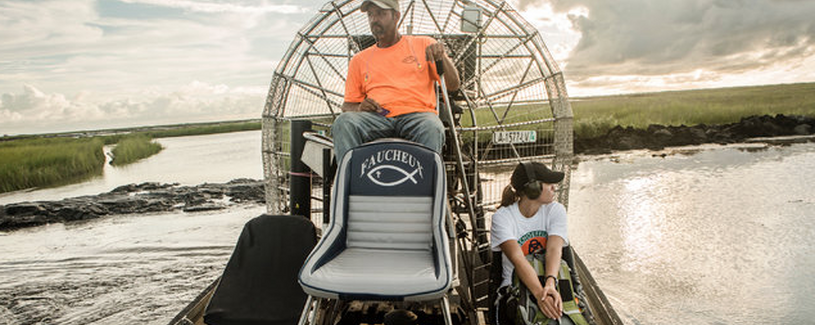What can winning a Sobotka Collaborative Research Grant do for you?
Two recent joint degrees reflect on receiving the grant

Spenser Shadle (MF/MBA '13) currently manages conservation-oriented timberland and organic farmland investments at New Island Capital--an impact investment firm based in San Francisco.
Patrick Hook (MF/MBA '13) is a decision support manager at Conservation Forestry, a timberland investment management organization based in Exeter, NH.
Alumni Patrick Hook (MF/MBA '13) and Spenser Shadle (MF/MBA '13) recently spoke to students at the Yale School of Management and Yale School of Forestry to share their story of how winning a Sobotka Collaborative Research Grant shaped their careers in the field of conservation investment. Under their Sobotka Research grant, Patrick and Spenser studied the risks inherent in wetland mitigation banking for investors; their white paper was subsequently adopted in the U.S. Army Corps of Engineers’ training modules and has been featured in the New York Times.
Patrick and Spenser were originally inspired to research the investment risks inherent in wetland mitigation banking during an Forest and Ecosystem Finance course; while completing a required assignment, they discovered that it was difficult to identify an appropriate discount rate to use in a wetland mitigation bank financial model, primarily because very little information on the risks inherent in wetland mitigation banking existed. Fueled by a desire to enhance their financial skills outside the classroom and potentially become experts in a thinly researched field, Patrick and Spenser decided to apply for the Sobotka Collaborative Research grant in collaboration with FES Professor Deborah Spalding and FES Professor Geert Rouwenhorst.
Reflecting on their project, Patrick and Spenser emphasized that the primary value they derived from the project was the opportunity to work through an in-depth research project outside of the classroom while at SOM and FES – rather than just the success of the white paper (on which they still receive phone calls today!). The project afforded them the opportunity to become experts in a nascent but promising field, and motivated them beyond the goal of achieving a good grade and toward developing a rigorous and polished product.
Are you interested in applying for a grant through the Sobotka Collaborative Research Fund? The application for the 2015-2016 Sobotka Research Fund is now live! Patrick and Spenser provided the following insider tips for students seeking some guidance on how developing a project concept:
- Identify which industry you are interested in exploring further, and/or potentially seeking an internship or job.
- Research which questions are most important and pressing to professionals in that industry. Practitioners are usually eager to talk with students – give them a call!
- Confirm that your proposed project will truly supplement the skills and knowledge that you can gain through regular courses. A successful project will help you develop new skills and expertise.
The Sobotka Collaborative Research Fund supports student and faculty research activities in the field of business and the environment. The goal of this program is to enable students and faculty to work together and develop comprehensive and scientifically rigorous research projects that can be published in relevant academic journals, books, case studies or articles.
The application for the 2015-2016 Sobotka Research Fund grant cycle is now open (due January 4, 2016), and can be accessed on the Sobotka program page (download form from "Get Involved" tab).